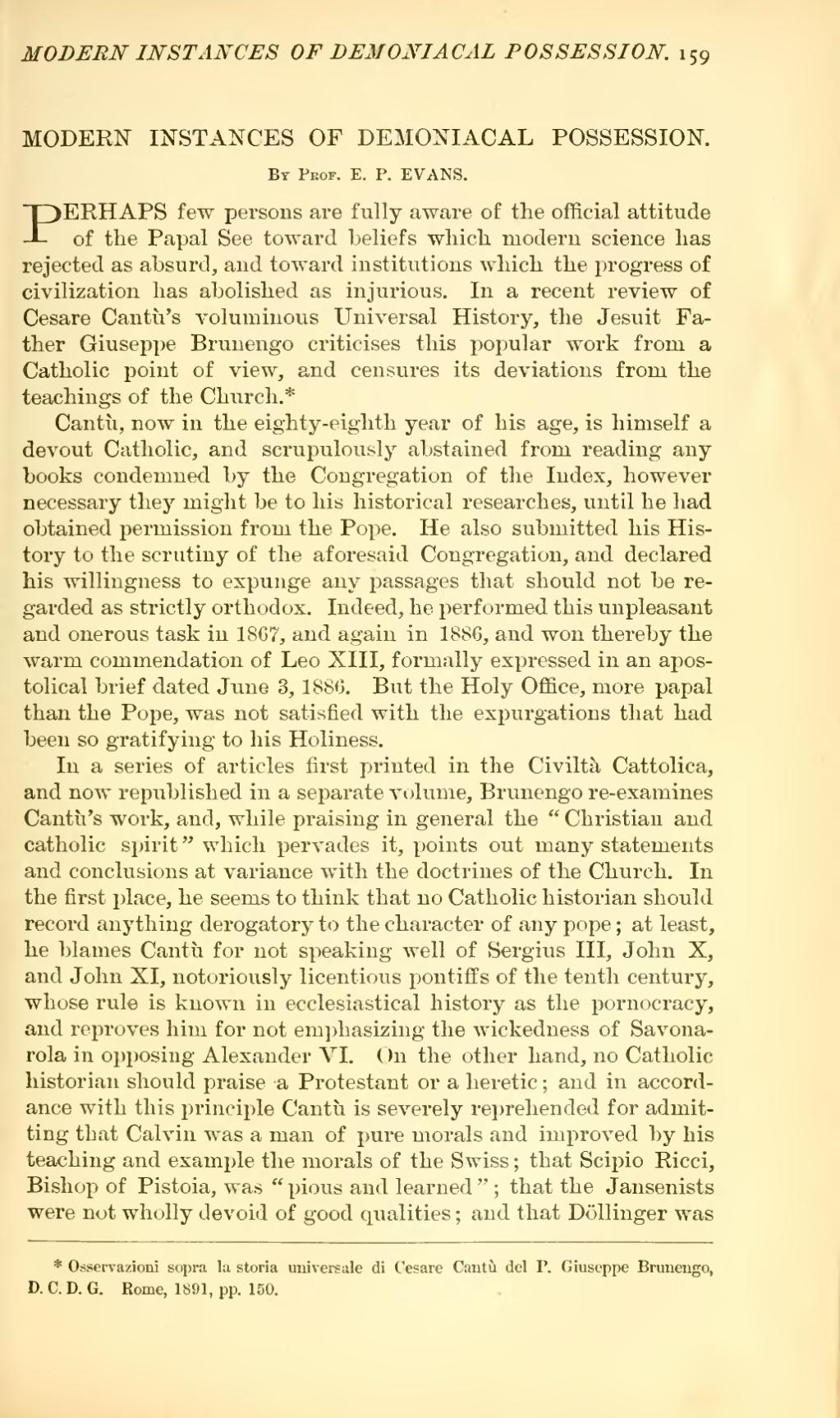| MODERN INSTANCES OF DEMONIACAL POSSESSION. |
By Prof. E. P. EVANS.
PERHAPS few persons are fully aware of the official attitude of the Papal See toward beliefs which modern science has rejected as absurd, and toward institutions which the progress of civilization has abolished as injurious. In a recent review of Cesare Cantù's voluminous Universal History, the Jesuit Father Giuseppe Brunengo criticises this popular work from a Catholic point of view, and censures its deviations from the teachings of the Church.[1]
Cantù, now in the eighty-eighth year of his age, is himself a devout Catholic, and scrupulously abstained from reading any books condemned by the Congregation of the Index, however necessary they might be to his historical researches, until he had obtained permission from the Pope. He also submitted his History to the scrutiny of the aforesaid Congregation, and declared his willingness to expunge any passages that should not be regarded as strictly orthodox. Indeed, he performed this unpleasant and onerous task in 1867, and again in 1886, and won thereby the warm commendation of Leo XIII, formally expressed in an apostolical brief dated June 3, 1886. But the Holy Office, more papal than the Pope, was not satisfied with the expurgations that had been so gratifying to his Holiness.
In a series of articles first printed in the Civiltà Cattolica, and now republished in a separate volume, Brunengo re-examines Cantù's work, and, while praising in general the "Christian and catholic spirit" which pervades it, points out many statements and conclusions at variance with the doctrines of the Church. In the first place, he seems to think that no Catholic historian should record anything derogatory to the character of any pope; at least, he blames Cantù for not speaking well of Sergius III, John X, and John XI, notoriously licentious pontiffs of the tenth century, whose rule is known in ecclesiastical history as the pornocracy, and reproves him for not emphasizing the wickedness of Savonarola in opposing Alexander VI. On the other hand, no Catholic historian should praise a Protestant or a heretic; and in accordance with this principle Cantù is severely reprehended for admitting that Calvin was a man of pure morals and improved by his teaching and example the morals of the Swiss; that Scipio Ricci, Bishop of Pistoia, was "pious and learned"; that the Jansenists were not wholly devoid of good qualities; and that Döllinger was
- ↑ Osservazioni sopra la storia universale di Cesare Cantù del P. Giuseppe Brunengo, D. C. D. G. Rome, 1891, pp. 150.

